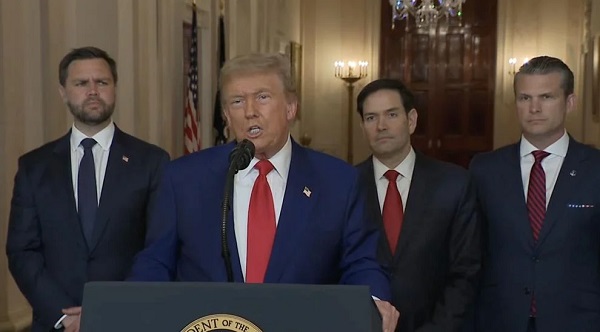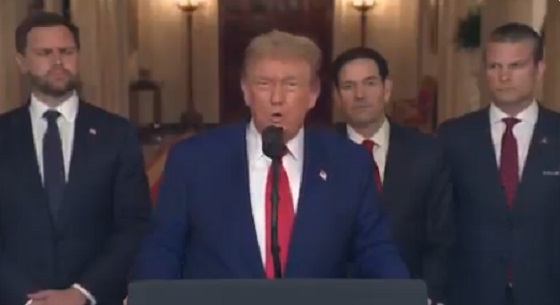Energy
Energy Policies Based on Reality, Not Ideology, are Needed to Attract Canadian ‘Superpower’ Level Investment – Ron Wallace
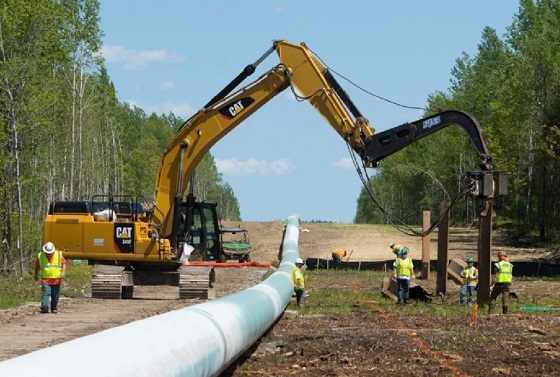
From Energy Now
By Ron Wallace
Get the Latest Canadian Focused Energy News Delivered to You! It’s FREE: Quick Sign-Up Here
OPEC Secretary-General Haitam Al Ghais recently delivered a message in Alberta that energy policies should be “based on reality, not ideology.” These comments are particularly relevant to Canada given the history of the past decade and the future policy path being proposed by the Carney government. Secretary Al Ghais cited studies from the IEA that noted in the past decade global investment in “clean energy” has approached $17 trillion with the result that renewable sources currently supply less than 4% of the world’s energy. Meanwhile, initiatives such as the introduction of EV’s, which apparently continues as a priority policy for Canada, have reached a total global penetration rate of less than 4% as electric cars are increasingly losing their appeal among new drivers in Western nations.
Considering an annual estimated cost of USD $640 billion required to maintain and secure global energy sources, the Secretary-General stressed the importance of “consistent messaging” for capital investment markets as they prepare to meet future energy demands through to 2050. By that time OPEC foresees oil and gas comprising more than 53% of the global energy mix with predictions that global oil demand will rise to more than 120 million barrels per day (mb/d) from the104 mb/d today. As for Alberta, he noted:
“Alberta’s success fits with the inclusive all-energies, all-technologies and all-peoples energy futures that OPC continues to advocate for – one based on realities, not ideologies such as unrealistic net zero targets that fixated on deadlines and dismissed certain energies.”
These words are highly relevant for Alberta and Canada, coming precisely at a time when the Federal government is debating new legislation (Bill C-5) that seeks to accelerate regulatory processes for selected projects. It remains to be seen if this approach will lead to heightened co-operation between Federal and provincial governments.
Federal aspirations, largely focused on Natural Resources Minister Tim Hodgson will quickly be tested by an increasingly impatient Alberta government that has announced plans to entice a private-sector player to build a major crude pipeline to coastal waters. In that regard, Premiers from Alberta and Saskatchewan are increasingly advocating for the repeal of policies like the West Coast tanker ban and net-zero electricity regulations, as they press for the development of defined energy corridors to access tidewaters noting that: “The federal government must remove the barriers it created and fix the federal project approval processes so that private sector proponents have the confidence to invest.” As Premier Moe has argued, if Canada scrapped policies such as proposed caps on oil and gas emissions Saskatchewan, which is currently Canada’s second-largest oil-producing province, could double its annual oil production.
It is more than ironic that controversial legislation currently being fast-tracked through the House (Bill C-5) effectively admits that the raft of Acts and Regulations enacted under the Trudeau government constitute material barriers to national development. The federal government, instead of repealing, or substantially amending that legislation some of which is being challenged, has received tough love from the Supreme Court, instead proposes to give Cabinet the power to suspend the IAA and several other key Acts in order to speed the process of issuing development applications and permits. By not doing the heavy lifting in Parliament needed to repeal or modify the burdensome legislative mandates enacted over the past decade, Carney’s remarkable approach instead chooses to circumvent that legislative base with the arbitrary suspensions of selected laws.
Meanwhile, Bill C-5 has received attention from parliamentarians and Indigenous communities. Former Trudeau-era Justice Minister Wilson-Raybould has commented that Bill C-5 has been developed “behind closed doors” to allow the federal government to “make decisions and build projects on its own terms, at its own pace and based on rules that it choses to make up as they go along.” Their concern is that the proposed law would give unprecedented powers to the federal cabinet to fast-track projects that the Cabinet defines as being in “national interest” allowing them to sidestep Canadian laws such as the Indian Act, Fisheries Act, Migratory Birds Convention Act and Canadian Environment Protection Act. Assumptions that the Act is being designed to facilitate oil and gas, as opposed to renewable energy, projects remain to be seen.
Recall that there remains long-simmering federal-provincial tensions rooted in jurisdictional disputes over the Impact Assessment Act (IAA) (or Bill C-69) which the Supreme Court of Canada (SCC) ruled as having parts that constituted an unconstitutional, “impermissible intrusion“ federal overreach into provincial jurisdiction. Subsequently, the Federal Court overturned Canada’s ban on single-use plastic having deemed that policy to be “unreasonable and unconstitutional”. The federal Clean Electricity Regulations (published in November 2024) are strongly opposed by Alberta which in April 2025 filed a reference case with the Alberta Court of Appeal to challenge the constitutionality of those Regulations with arguments that Canada’s constitution under Section 92A grants exclusive jurisdiction to the province for the generation and production of electrical energy.
Instead of providing regulatory and investment certainty the federal government has chosen to advance Bill C-5 that introduces more, not less, uncertainty into the Canadian energy development and regulatory process. One should ask: Does a process designed to over-ride existing laws and statutes operated by a closed Cabinet that reaches decisions based on “criteria” set by Ottawa, provide enhanced investment certainty for proponents of major energy projects?
Alternatively, would it not be better to amend or repeal existing, punitive federal laws and regulations, starting with those that are presently being actively challenged by the provinces in the courts? Canada needs to ask itself if, with this legislation, we will achieve the “consistent messaging” required to attract the capital investment for energy projects as was highlighted by the Secretary-General.
Ron Wallace is a former Member of the National Energy Board.
Energy
Carney’s Bill C-5 will likely make things worse—not better

From the Fraser Institute
By Niels Veldhuis and Jason Clemens
The Carney government’s signature legislation in its first post-election session of Parliament—Bill C-5, known as the Building Canada Act—recently passed the Senate for final approval, and is now law. It gives the government unprecedented powers and will likely make Canada even less attractive to investment than it is now, making a bad situation even worse.
Over the past 10 years, Canada has increasingly become known as a country that is un-investable, where it’s nearly impossible to get large and important projects, from pipelines to mines, approved. Even simple single-site redevelopment projects can take a decade to receive rezoning approval. It’s one of the primary reasons why Canada has experienced a mass exodus of investment capital, some $387 billion from 2015 to 2023. And from 2014 to 2023, the latest year of comparable data, investment per worker (excluding residential construction and adjusted for inflation) dropped by 19.3 per cent, from $20,310 to $16,386 (in 2017 dollars).
In theory, Bill C-5 will help speed up the approval process for projects deemed to be in the “national interest.” But the cabinet (and in practical terms, the prime minister) will determine the “national interest,” not the private sector. The bill also allows the cabinet to override existing laws, regulations and guidelines to facilitate investment and the building of projects such as pipelines, mines and power transmission lines. At a time when Canada is known for not being able to get large projects done, many are applauding this new approach, and indeed the bill passed with the support of the Opposition Conservatives.
But basically, it will allow the cabinet to go around nearly every existing hurdle impeding or preventing large project developments, and the list of hurdles is extensive: Bill C-69 (which governs the approval process for large infrastructure projects including pipelines), Bill C-48 (which effectively bans oil tankers off the west coast), the federal cap on greenhouse gas emissions for only the oil and gas sector (which effectively means a cap or even reductions in production), a quasi carbon tax on fuel (called the Clean Fuels Standard), and so on.
Bill C-5 will not change any of these problematic laws and regulations. It simply will allow the cabinet to choose when and where they’re applied. This is cronyism at its worst and opens up the Carney government to significant risks of favouritism and even corruption.
Consider firms interested in pursuing large projects. If the bill becomes the law of the land, there won’t be a new, better and more transparent process to follow that improves the general economic environment for all entrepreneurs and businesses. Instead, there will be a cabinet (i.e. politicians) with new extraordinary powers that firms can lobby to convince that their project is in the “national interest.”
Indeed, according to some reports, some senators are referring to Bill C-5 as the “trust me” law, meaning that because there aren’t enough details and guardrails within the legislation, senators who vote in favour are effectively “trusting” Prime Minister Carney and his cabinet to do the right thing, effectively and consistently over time.
Consider the ambiguity in the legislation and how it empowers discretionary decisions by the cabinet. According to the legislation, cabinet “may consider any factor” it “considers relevant, including the extent to which the project can… strengthen Canada’s autonomy, resilience and security” or “provide economic benefits to Canada” or “advance the interests of Indigenous peoples” or “contribute to clean growth and to meeting Canada’s objectives with respect to climate change.”
With this type of “criteria,” nearly anything cabinet or the prime minister can dream up could be deemed in the “national interest” and therefore provide the prime minister with unprecedented and near unilateral powers.
In the preamble to the legislation, the government said it wants an accelerated approval process, which “enhances regulatory certainty and investor confidence.” In all likelihood, Bill C-5 will do the opposite. It will put more power in the hands of a very few in government, lead to cronyism, risks outright corruption, and make Canada even less attractive to investment.
Automotive
Repeal the EV mandate, Mr. Carney

By Dan McTeague
Earlier this month, Donald Trump fulfilled a major campaign promise and struck a blow against environmentalist governance in Canada, all in one fell swoop.
He did this by signing a congressional resolution revoking a waiver granted to California by the Biden Administration that enabled the state to set automotive emissions standards significantly stricter than the national standard. So strict, in fact, that in practice only electric vehicles (EVs) could realistically meet them.
This waiver functioned as a backdoor EV mandate, not just in California, but for all of the United States. That’s because automakers don’t want to be locked out of the most populous state in the union but are also disinclined to build one set of cars for California and another for the rest of the country. Their only option would be to increase their production of EVs, to the exclusion of gas-and-diesel internal combustion engine (ICE) vehicles.
Trump has argued, both during his 2024 campaign and since, that the waiver enabled far-left California to saddle the rest of the country with environmental policies it had never voted for and couldn’t repeal. That view helped him win back the White House.
But what does this have to do with Canada? Donald Trump has no power over our own EV mandate. The law of the land in Canada, though it was barely discussed in this spring’s federal election, beyond a last-minute pledge from Pierre Poilievre to reverse it, is still that by 2035, 100 per cent of new light-duty vehicles sold in Canada (including passenger cars, pickup trucks, and SUVs) must be electric.
It doesn’t sound like Mark Carney’s Liberals have any intention of changing course from this Trudeau-era policy — even though new EVs sold in Canada have been falling as a share of overall purchases. To stay on track for 2035, the mandate stipulates, 20 per cent of new cars sold in Canada next year must be EVs. Last year just 13.7 per cent were. And, as Tristin Hopper noted recently, “these sales are disproportionately concentrated in a single province … Of the 81,205 zero-emission vehicles sold in Canada in the last quarter of 2024, 49,357 were sold in Quebec.”
That doesn’t bode well for a national mandate. And Trump’s move further complicates the Liberals’ EV mandate, which has always been presented as an investment opportunity as well as a chance to reduce global carbon emissions. Our federal and provincial governments (particularly Ontario and Quebec) have bet very big on EVs dominating the future. Last year, the Parliamentary Budget Officer estimated that public investment in EVs exceeded $52 billion. Much of that money has gone towards subsidizing the manufacture of EVs in Canada.
Except there just aren’t enough Canadian consumers to justify that expense. The scheme has always hinged on there being a robust EV market south of the border. The Canadian Vehicle Manufacturers Association reminds us that “vehicles are the second largest Canadian export by value, at $51 billion in 2023, of which 93 per cent was exported to the U.S.”
The assumption was that existing avenues of trade would remain essentially unchanged. Even leaving aside concerns about what our future trade relationship with the United States will be, the end of America’s backdoor mandate — and with it, any reason to believe there will be a serious market for EVs in the U.S. — exposes our current EV policies as a bum deal.
Of course, there was never a strong case for attempting to turn Canada into a global EV superpower. There’s a reason Canadian consumers remain skeptical of them. EV batteries don’t perform well in the frigid temperatures for which our country is famous. In cold weather, they charge slowly and then struggle to hold the charge.
Our already-stressed electrical grid isn’t ready for the extra demand that would come with widespread EV adoption, especially considering the Liberals’ desire to progressively decarbonize the grid. And we have nothing like the infrastructure we would need to support this transition.
These roadblocks have now become so obvious that even the automakers, the main beneficiaries of both taxpayer-funded largesse and the mandates themselves, have started saying so. “The fact is these EV sales mandates were never achievable,” read a recent statement by the Alliance for Automotive Innovation, which represents Toyota, GM, Volkswagen, and Stellantis. Ford Canada CEO Bev Goodman has described the mandate as unrealistic and called for its repeal. Kristian Aquilina, president of GM Canada, has said the same.
Whether they realize it or not, our political leaders will have to face up to this reality, and sooner rather than later. Their best option is also the most straightforward one. There’s no reason for us to keep throwing good money after bad money, nor to force an unwanted product on Canadian consumers.
You can do it, Mr. Carney. Repeal the EV mandate.
-

 conflict2 days ago
conflict2 days agoThe Oil Price Spike That Didn’t Happen
-

 Business1 day ago
Business1 day agoChina still squeezing rare-earth exports despite U.S. pact
-

 International2 days ago
International2 days agoIsraeli media report claims Netanyahu and Trump agreed to end Gaza hostilities
-
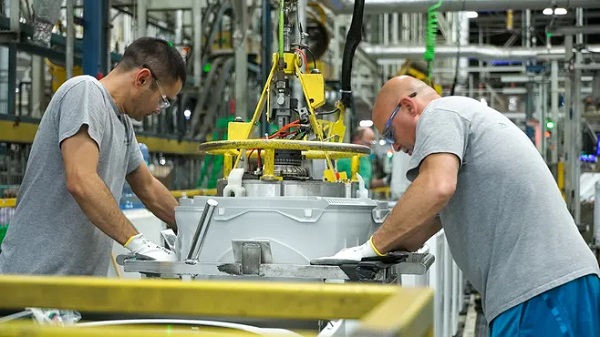
 Business1 day ago
Business1 day agoTRUMP TARIFFS: GE Appliances brings washer manufacturing back from China
-
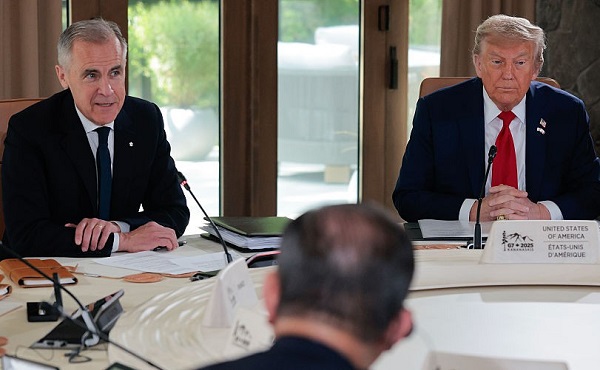
 Business1 day ago
Business1 day agoTrump announces end to trade negotiations with Canada over costly digital service tax
-
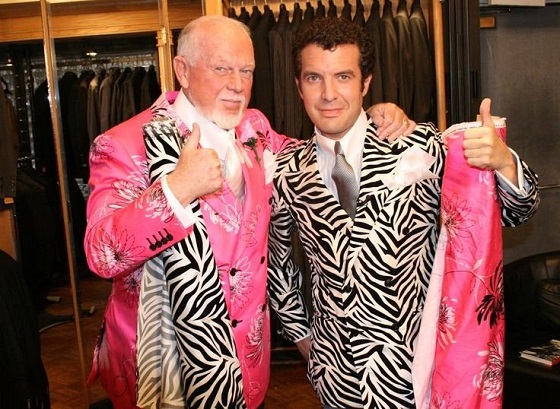
 Bruce Dowbiggin1 day ago
Bruce Dowbiggin1 day agoDon & Rick: Canadian Icons, Mixed Messages, Lasting Impacts
-

 National22 hours ago
National22 hours agoQuebec bans gender-confused inmates from requesting prison of their choice
-

 Business22 hours ago
Business22 hours agoTrump terminates trade talks with Canada over digital tax on U.S. tech




